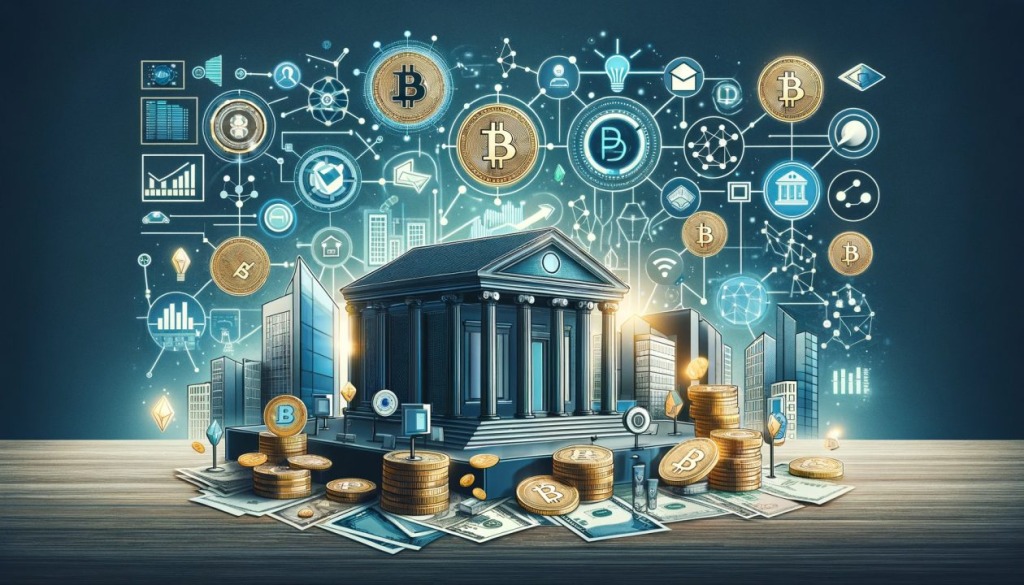
Introduction
Money has evolved significantly over the centuries, transitioning from bartering goods to using precious metals as a medium of exchange, and eventually to the adoption of fiat currencies controlled by governments and central banks. However, the digital age has ushered in a new era of finance, marked by the emergence of cryptocurrencies and decentralized finance (DeFi). In this article, we will explore the evolution of money and how DeFi is reshaping the concept of currency. Modern-day finance needs modern-day strategies! Click https://quantum-fbc.com/ to learn such investment strategies that can change the game for you.
Traditional Fiat Currency
Fiat currency, such as the US dollar or the euro, is the backbone of the global economy. It holds value because governments declare it as legal tender, and people trust in its purchasing power. Fiat money is centralized, meaning it is issued and regulated by central authorities like governments and central banks. While fiat currency has served as a reliable medium of exchange for centuries, it comes with its own set of challenges, including inflation, counterfeiting, and centralized control.
The Rise of Cryptocurrencies
The advent of Bitcoin in 2009 marked the beginning of the cryptocurrency revolution. Bitcoin, created by an anonymous entity known as Satoshi Nakamoto (read more), introduced the world to blockchain technology—a decentralized ledger that records all transactions on a distributed network of computers. Unlike fiat currency, cryptocurrencies like Bitcoin are not controlled by any central authority. Instead, they operate on a peer-to-peer network, allowing users to transact directly without the need for intermediaries.
Cryptocurrencies offer several advantages over traditional fiat currency, including lower transaction fees, faster settlement times, and increased security. Additionally, cryptocurrencies provide financial freedom to individuals in regions with unstable or oppressive governments, where access to traditional banking services may be limited.
Decentralized Finance (DeFi)
Decentralized finance, or DeFi, is a rapidly growing sector within the cryptocurrency industry that aims to recreate traditional financial systems using blockchain technology. Unlike traditional finance, which relies on centralized intermediaries like banks and exchanges, DeFi operates on decentralized networks, enabling peer-to-peer lending, borrowing, and trading without the need for intermediaries.
One of the key principles of DeFi is financial inclusivity, as it provides access to financial services for individuals who may be excluded from the traditional banking system. Additionally, DeFi offers greater transparency, as all transactions are recorded on a public blockchain, reducing the risk of fraud and manipulation.
Tokenization and Digital Assets
Tokenization is the process of converting real-world assets, such as real estate or stocks, into digital tokens on a blockchain, according to Nasdaq. These digital tokens, known as security tokens, represent ownership rights to the underlying assets and can be traded on decentralized exchanges (DEXs) powered by DeFi protocols.
Tokenization unlocks liquidity for illiquid assets, allowing investors to fractionalize ownership and trade assets in smaller increments. Furthermore, tokenization reduces barriers to entry for investors, as it enables fractional ownership of high-value assets that may have been previously inaccessible.
Smart Contracts and Programmable Money
Smart contracts are self-executing contracts with the terms of the agreement directly written into code. These contracts automatically execute and enforce the terms of the agreement when predefined conditions are met, without the need for intermediaries.
In DeFi, smart contracts serve as the backbone of automated financial services, enabling features such as decentralized lending, automated trading, and yield farming. Smart contracts enable programmable money, allowing developers to create innovative financial products and services that operate autonomously on blockchain networks.
Challenges and Opportunities
While DeFi offers numerous opportunities for innovation and financial inclusion, it also presents several challenges. Regulatory uncertainty remains a significant hurdle for the widespread adoption of DeFi, as governments grapple with how to regulate decentralized financial services operating across borders.
Security is another concern in the DeFi space, as hackers continue to exploit vulnerabilities in smart contracts and decentralized applications (DApps). Additionally, scalability remains a challenge for many DeFi platforms, as they struggle to handle the growing demand for decentralized financial services without sacrificing security or decentralization.
Despite these challenges, DeFi holds tremendous potential to revolutionize the global financial system. By providing access to financial services for the unbanked and underbanked, DeFi has the power to promote financial inclusion and economic empowerment on a global scale.
The Future of Money
As DeFi continues to evolve and mature, it is poised to play an increasingly prominent role in shaping the future of money. The integration of DeFi with traditional financial systems has the potential to streamline processes, reduce costs, and increase efficiency across the board.
Furthermore, the rise of central bank digital currencies (CBDCs) and stablecoins is blurring the lines between traditional finance and DeFi. CBDCs are digital currencies issued by central banks, while stablecoins are cryptocurrencies pegged to the value of fiat currencies. These digital assets bridge the gap between the traditional financial system and the world of DeFi, paving the way for greater interoperability and adoption.
Conclusion
In conclusion, the evolution of money is an ongoing process fueled by technological innovation and societal change. DeFi represents the next frontier in the evolution of finance, offering a decentralized alternative to traditional financial systems. While challenges remain, the potential benefits of DeFi—including financial inclusion, transparency, and innovation—are too significant to ignore, making it an exciting and transformative force in the world of finance.
Last Updated: May 8, 2024




















